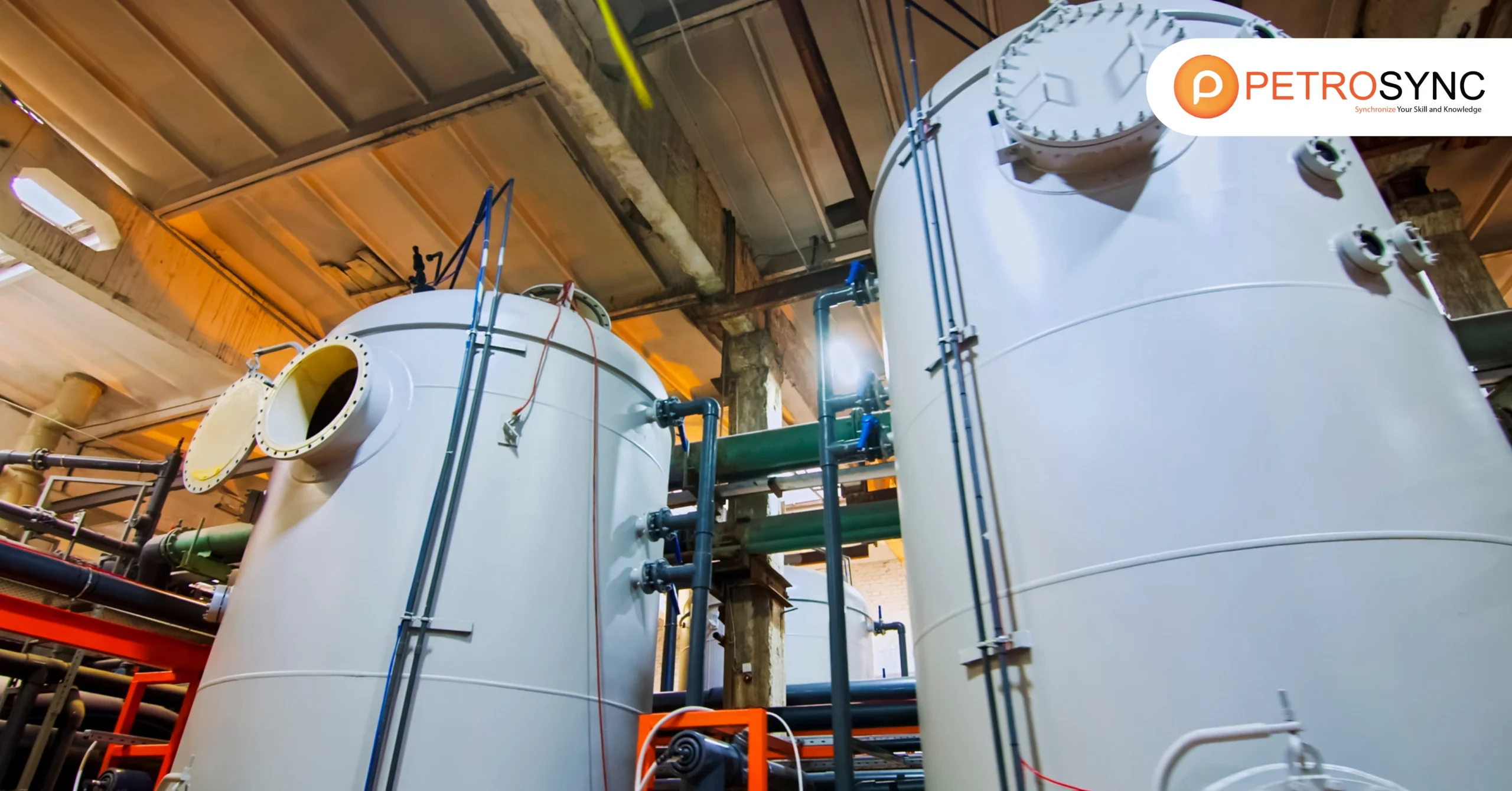For engineers, knowing ASME standards inside and out is essential for everything from designing to testing mechanical systems and equipment. Enrolling in ASME Training gives you the chance to really dig deep into ASME standards and equip you with the knowledge and skills to excel in your day to day jobs. Through this training, you can learn practical techniques that directly help you design and engineer mechanical components and systems with precision and excellence.
What Is ASME Training?
ASME Training, offered by various training providers, focuses on educating individuals about the standards and practices set by the American Society of Mechanical Engineers (ASME). This training is crucial because ASME standards can be complex to comprehend and apply effectively.
The workshops provided by general training providers aim to simplify and clarify these standards, ensuring that participants gain a thorough understanding. ASME Training covers a range of topics, including design, fabrication, inspection, and testing of various mechanical systems and equipment. The goal is to equip professionals with the knowledge and skills necessary to navigate and apply ASME standards in their respective industries. Through these workshops, individuals can enhance their competence in adhering to ASME guidelines, contributing to the overall safety, quality, and efficiency of mechanical engineering practices.
Why Enroll for ASME Training?
Enrolling in ASME training offers numerous benefits for engineers and professionals in the field of mechanical engineering. ASME training provides you with the necessary knowledge and skills to understand and apply ASME codes and standards effectively. These standards are essential for ensuring the safety, quality, and efficiency of mechanical systems and equipment.
1. Understanding ASME Standards
Enrolling in ASME Training provides you with a comprehensive understanding of the complex standards set by the American Society of Mechanical Engineers (ASME). This knowledge is essential for professionals working in industries where adherence to these standards is crucial for safety, quality, and compliance.
2. Application in Real-World Projects
ASME Training equips you with the practical skills needed to apply ASME standards effectively in real-world engineering projects. The training focuses on translating theoretical knowledge into practical applications, ensuring that you can navigate and implement ASME guidelines in your daily work.
3. Enhancing Technical Competence
By participating in ASME Training, you have the opportunity to enhance your technical competence in mechanical engineering. The courses cover a range of topics, including design, fabrication, inspection, and testing, contributing to your overall proficiency in these critical areas of mechanical systems and equipment.
4. Ensuring Quality and Safety
ASME standards play a vital role in ensuring the quality and safety of mechanical components and systems. Enrolling in ASME Training allows you to deepen your understanding of these standards, enabling you to contribute to the creation and maintenance of high-quality, safe, and compliant engineering projects.
5. Staying Updated on Industry Practices
The field of mechanical engineering is dynamic, with standards and practices evolving over time. ASME Training keeps you informed about the latest developments and updates in the industry. This continuous learning ensures that you stay current with best practices and industry standards, enhancing your professional relevance and credibility.
Are ASME Standards Free?
No, ASME standards are not free. You can check the prices for ASME standards on their official website. However, if you join ASME training offered by PetroSync, you will receive ASME standards in the form of course materials.
This means that while you may have to pay for access to ASME standards separately, participating in ASME training through PetroSync provides you with the selected sections of the standards as part of the training package. This ensures that you have the resources you need to learn and apply ASME standards effectively in your professional endeavors.
What Are The Ranges of ASME Training Topics in 2024?
For specific topics, you can opt for in-house training tailored to your company’s needs so we can ensure our training outline addresses any particular challenges or areas of interest.
1. ASME Section VIII Division 1 & 2 – Pressure Vessel
In this five-day program, you will gain in-depth insights and a comprehensive understanding of the widely used ASME codes related to designing, engineering, and testing pressure vessels, specifically Section VIII Div. 1 and Section VIII Div. 2.
The focus of this course is on grasping both the explicit and implied requirements (meaning what is explicitly mentioned and what is implied) of the codes. You will receive detailed explanations on how to adopt and apply the code rules and design formulas for various Design Conditions and Services. This program aims to provide you with a solid understanding of the mechanics involved in working with these ASME codes.
| Registration Fee | USD 3250 |
| Duration | 5 Days |
| Available Date |
|
2. ASME B31.3 – Process Piping Code Design Requirements
In this concentrated five-day program, you will gain a thorough understanding of the Process Piping Code, ASME B31.3, and its practical application across various stages, from Piping Design to testing and certification. The course provides detailed insights into the code’s requirements related to designing piping components, branch connections, choosing flanges and fittings, considering flexibility, specifying materials, managing fabrication, welding, NDT examination, and conducting Pressure testing.
| Registration Fee | USD 3250 |
| Duration | 5 Days |
| Available Date |
|
3. ASME Section I – Power Boilers
In this course, you will gain a thorough understanding of the roles and responsibilities of individuals engaged in the design, fabrication, and inspection of new components for power boiler plants, as outlined in Section I of the ASME Boiler & Pressure Vessel Code. Additionally, you will receive insights into other sections of the ASME Boiler & Pressure Vessel codes. You will be taught how to adopt and apply the code rules and design formulas necessary for constructing boilers.
| Registration Fee | USD 3250 |
| Duration | 5 Days |
| Available Date |
|
4. ASME PCC-2 Repair of Pressure Equipment
The aim of this 3-day training program is to familiarize you with this standard and ensure you grasp all the fundamental concepts and principles, along with the different procedures for repairing pressure equipment and piping.
Throughout the training, we will also explore the limitations, advantages, and disadvantages of the procedures outlined in the standard. Moreover, we will clarify how this standard relates to other in-service codes and standards, such as API-510/570/579/580, helping you understand their correlation.
| Registration Fee | USD 3250 |
| Duration | 5 Days |
| Available Date |
|
5. Shell and Tube Heat Exchangers Mechanical Design (ASME/TEMA)
In this five-day program, you will gain a thorough understanding of the ASME/ TEMA codes and standards related to mechanical design engineering, inspection, and testing of shell and tube heat exchangers. The course focuses on comprehending both the explicit and implied requirements (meaning what is directly stated and what is suggested) of the codes.
You will receive detailed explanations on how to apply these code and standard rules and mechanical design formulas for various design conditions and services. ASME Section VIII/ TEMA are widely adopted guidelines that are generally easier to use compared to other codes and standards such as BS/ DIN.
| Registration Fee | USD 3250 |
| Duration | 5 Days |
| Available Date |
|
All in all, ASME training by PetroSync provides valuable knowledge and skills that you can directly use in your engineering work. Through these programs, you will gain a better understanding of ASME codes and standards and learn how to apply them in practical situations.
Whether you are involved in design, fabrication, inspection, testing, or other engineering tasks, ASME training equips you with the tools you need to excel in your role. By applying what you learn from ASME training to your daily work, you will be able to contribute effectively to your organization’s success while ensuring compliance with industry regulations and best practices.
Credit: Freepik

SEO specialist by day, fact-checker by night. An avid reader and content writer dedicated to delivering accurate and engaging articles through research and credible sources.






